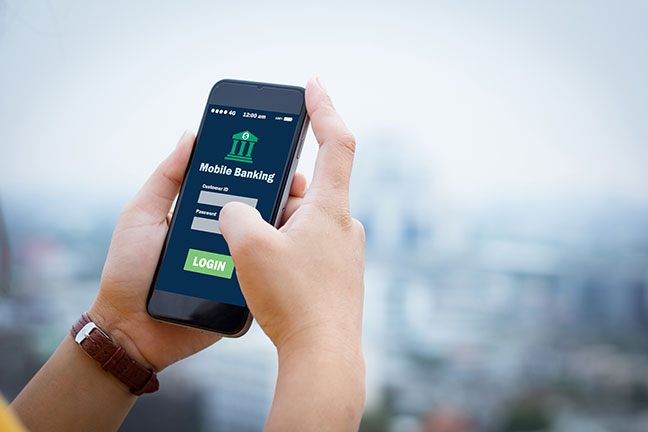For individuals with low income, finding the right banking partner is more than a matter of convenience—it’s a critical step towards financial well-being. The choice of a bank can profoundly influence your financial health, offering avenues for growth and stability.
This guide is designed to assist you in making informed decisions about personal finance by identifying the best banks for low-income households. With a clear understanding of what to look for in a bank, you can manage your finances effectively while keeping costs to a minimum.
Why Is Choosing the Right Bank Important for Low-Income Households?
Choosing the right bank is crucial for low-income households. A suitable bank can offer financial stability by providing low-fee or fee-free account options, which are essential for keeping costs down. Avoiding banks with high fees and stringent account requirements is key to maintaining financial health.
For example, a bank that charges for ATM or debit card transactions can quickly take a big portion of your take-home pay.
Additionally, the right bank can offer supportive services that enhance your ability to manage and grow your finances effectively.
What are the Main Types of Bank Accounts You Need?
Choosing the right types of bank accounts is crucial for effective financial management. Different accounts serve various purposes, from day-to-day transactions to long-term savings.
Understanding these options helps you make informed decisions about where to keep your money.
Free Checking Account
- Purpose: Free checking accounts are ideal for daily transactions like bill payments, purchases, and cash withdrawals.
- Benefits: They usually come with no monthly maintenance fee, allowing you to manage your money without additional costs. Look for features like free debit cards, online banking access, and minimal overdraft fees.
- Direct Deposit and ATM Access: Opt for accounts that offer direct deposit capabilities, ensuring quick and secure access to your funds. Free ATM access, either through the bank’s own ATMs or a network of partner ATMs, adds convenience and saves on withdrawal fees.
Savings Account
- Purpose: Savings accounts are designed for short-term or emergency savings. They offer a safe place to store money while earning some interest.
- Interest Rates: Interest rates on savings accounts are typically low but provide a risk-free return on your money. Online banks might offer higher rates compared to traditional banks.
- Accessibility: These accounts usually allow for easy access, though they might have limits on the number of free withdrawals per month before they charge a fee.
Money Market Account
- Purpose: Money market accounts are a hybrid of checking and savings accounts, offering higher interest rates than traditional savings accounts and some check-writing privileges.
- Higher Minimum Balance: They often require a higher minimum balance but can be a good option if you can maintain that balance and want to earn a better return on larger sums of money.
Certificates of Deposit (CDs)
- Purpose: CDs are time-bound savings accounts with a minimum deposit required that typically offer higher interest rates in exchange for leaving your money in the bank for a set period.
- Fixed Terms: Terms can range from a few months to several years, with penalties for early withdrawal. CDs are suitable for funds you don’t need immediate access to and wish to grow at a guaranteed rate.
When selecting bank accounts, consider your financial goals and needs. A combination of these accounts can offer both flexibility for everyday needs and growth for future plans.
How Can Online Banks Help You Succeed in Your Goals?
Online banks are an excellent option for low-income individuals, thanks to their typically higher interest rates on savings accounts and lower monthly fees.
Without the overhead costs associated with physical branches, online banks can offer more favorable terms, which can be especially beneficial for those managing tight budgets.
No Fee Checking Accounts Offered by Online Financial Institutions
Online financial institutions often offer no-fee checking accounts, a cost-effective solution for everyday banking. These accounts typically eliminate common charges like monthly maintenance fees, providing a budget-friendly option for managing daily finances.
Despite being free, these accounts usually come packed with features such as online bill pay, a mobile app, check deposits, and real-time account alerts. They often provide extensive ATM networks or reimbursements for ATM fees.
Be Sure to Set Up an Online High-Yield Savings Account
Setting up an online high-yield savings account is a smart way to grow your savings faster because these accounts usually offer higher interest rates than regular savings accounts. Your online bank can give better rates because it has fewer expenses compared to a traditional bank.
Plus, these accounts are user-friendly, with no monthly fees, and low minimum balance requirements.
Can a Community Bank or Credit Union Be a Good Option?
Community banks and credit unions are often well-suited to serve low-income individuals. They typically offer more personalized services and may have a better understanding of the local community’s financial needs.
How are Credit Unions Different from Local Banks?
Regional and community banks and credit unions frequently feature lower fees and better interest rates compared to larger, national banks, making them attractive options for those looking to maximize their financial resources.
Are There Specialized Banking Programs for Low-Income Individuals?
Some banks offer specialized programs or accounts designed for low-income customers. These may include features like fee waivers and free financial counseling, which can provide additional support to those in need.
Accessible account options tailored to lower-income individuals can help in managing finances more effectively, reducing the burden of fees and other banking costs.
What Are the Pitfalls to Avoid When Choosing a Bank?
When choosing a bank, it’s important to be aware of potential pitfalls. High overdraft fees can quickly deplete your funds, and hidden charges can accumulate over time. Always read the fine print and understand the terms and conditions of your account to avoid unexpected fees.
Make sure your online bank is a part of the Federal Deposit Insurance Corporation (FDIC). The FDIC protects your money in case of a bank default.

The Importance of Bank App Features for Low-Income Households
Modern banking apps offer various features that are particularly beneficial for low-income households. Features like instant money transfers through services like Zelle, robust security features to protect financial data, and tools for auto savings and bill pay notifications can help manage spending and save efficiently.
How Can EASY Wireless Assist Low-Income Households with Financial Management?
EASY Wireless can play a crucial role in assisting low-income households with financial management.
By offering free cell phone services through the Lifeline and ACP programs, EASY Wireless helps you save on monthly bills.
With FREE Unlimited Talk Text and Data, you can track your spending and manage your finances directly from your phone. Eliminate your monthly cell phone bill and put these savings towards building an emergency fund in your bank account.
Learn how to get FREE Cell Phone and Data Service Today!
Where Can You Find Information on The Best Financial Institution for Your Money?
To find detailed information on individual bank offerings, websites like:
- NerdWallet
- Bankrate
- Credit Karma
- … are invaluable resources.
They provide comprehensive comparisons of fees, interest rates, and other essential banking features. These platforms can help you analyze and choose the best banking option for your needs, ensuring that you select a bank that aligns with your financial goals.
Time to Find a Bank or Credit Union That Offers Free Services
Selecting the right bank is a significant step for individuals with low income. By understanding the essential features of a bank and utilizing resources like EASY Wireless, you can make choices that bolster your financial stability and growth.
Remember, the best bank for you is one that meets your financial needs and offers services at a cost you can afford.


